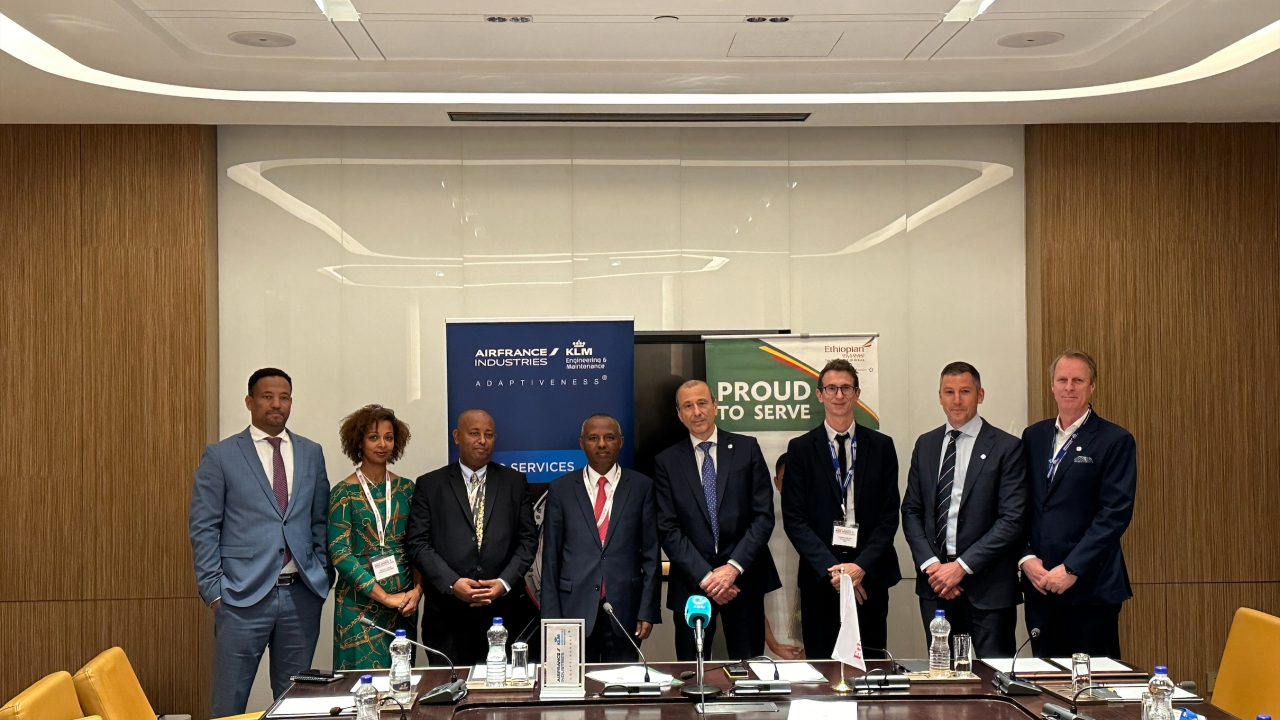Firnas breathes new life into recycling aircraft
Young Tunisian company, Firnas Aero Technics, is looking to change the way that airlines and operators in Africa and the Middle East deal with dismantling and ‘parting out’ of airframes when they reach the end of their lives, writes Vincent Chappard.

Statistics show that up to 10,000 airframes will become redundant over the coming decade. And, as air traffic is expected to double by 2030, airlines need to find capacity to store, dismantle and recycle these locally as they are now largely standing in deserts, many in the USA.
Firnas Aero Technics only entered the aircraft deconstruction market in 2017 but it is already making its mark.
“Our strategy is to reduce the size of aircraft cemeteries around the world,” explained director Nader Torjeman. “We offer tailor-made solutions for the storage and dismantling of end-of-life aircraft and are offering our services to airports, airlines and charter companies.”
Africa has a major card to play in the dismantling and recycling of airframes and Torjeman said Firnas Aero’s sites offer practical local storage solutions as north Africa provides an ideal environment and climate for the storage of these aircraft’.
With EASA part 145 certification, Firnas Aero Technics has also set up a facility dedicated to engine dismantling, providing customised solutions ranging from certified United Kingdom Accreditation Service (UKAS) quality for engineering consulting (QEC) processes to complete engine recycling.
The company plans to create several storage and deconstruction sites worldwide, the first being at the Tunisian airport of Tabarka, where it will have a warehouse and tools. This site is expected to be operational by mid-2020.
The company is also working with the Moroccan authorities and has recently been granted a licence to operate at El Rachidia Airport.
According to Firnas Aero, its operations in Tunisia and Morocco allow for convenient access from throughout west Africa as these locations also offer an advantageous legislative framework and competitive costs.
The company has also launched a complementary MRO operation and it is finalising the building of a hangar in Marrakech, capable of housing two business aircraft… initially to launch a line maintenance facility for which it already has the appropriate certification from both the Moroccan authorities and EASA.
Torjeman said there is a real demand in this sector, but a lack of capacity, so Firnas Aero has begun the project’s second phase with the construction of a new heavy maintenance hangar that will be completed within the coming year. The company also intends to support its development in the region with expansion into Asia and the Middle East.
Airframe dismantling and ‘parting out’ fulfils a vital need for MRO workshops as the local sourcing of – and access to – spare parts at competitive prices is key to providing support and an optimal level of service to airframe operators.
The same applies to the reduction of turnaround time, where the local availability of parts and the reduction in the costs are of paramount importance.
In today’s highly competitive environment, costs always come top of the ‘wish list’ and recycled parts from dismantled airframes now form an increasingly important part of the equation.
Since 2016, Air France Industries KLM Engineering and Maintenance (AFI KLM E&M) has been developing an aircraft dismantling business with a view to improving the supply of spare engines and equipment. Many parts of these airframes will be re-certified before being sold, answering the growing global requirement, as well as supplying its own MRO workshops.
And, to this end, AFI KLM E&M recently announced the launch of a subsidiary dedicated to this activity.
Stay up to date
Subscribe to the free Times Aerospace newsletter and receive the latest content every week. We'll never share your email address.

